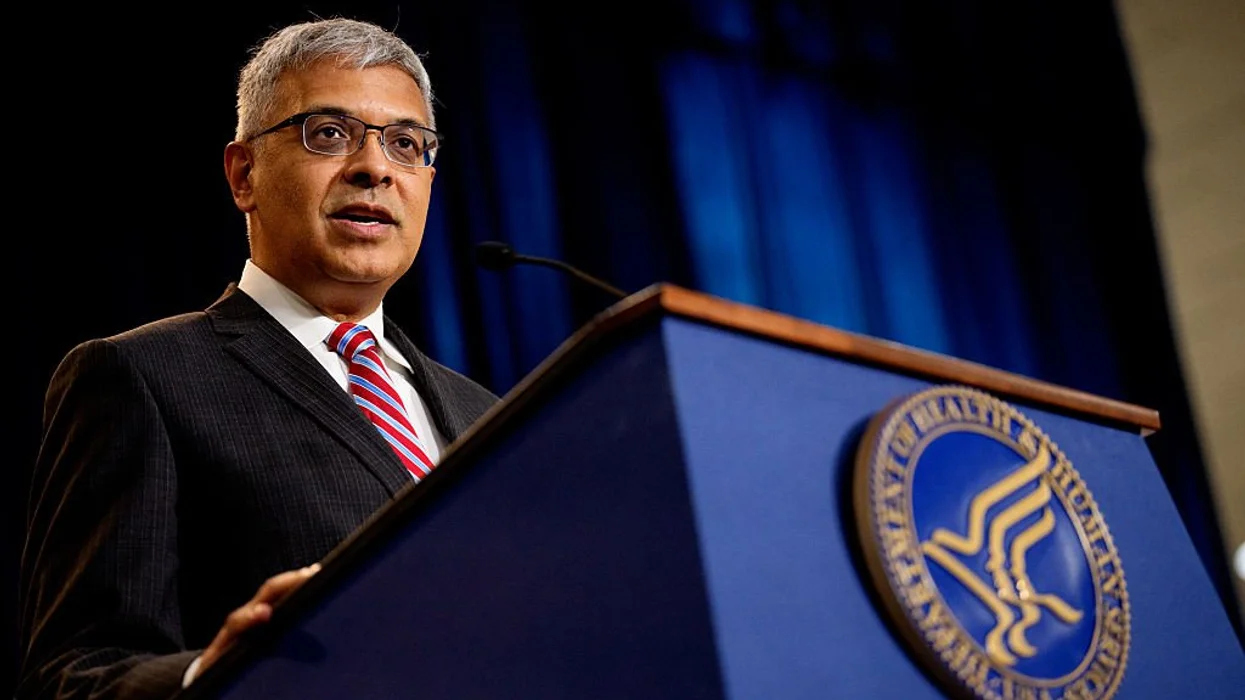
© 2025 Blaze Media LLC. All rights reserved.
"Don’t get down on yourself if find this debate tiresome. It is boring and, more importantly, entirely beside the point."
[Editor’s note: the following is an article by John Carney that originally appeared on CNBC.com]:

The belief that the United States under-taxes its wealthiest people has been greatly aided in its rise to respectability by the notion that raising taxes on upper-income earners would help ameliorate troubles allegedly generated by our federal budget deficits.
By now you are probably very well familiar with the standard terms of this debate. Democrats argue that there's a lot of revenue that can be collected from the income of the wealthy -- and point to the fact that the economy seemed to grow quite nicely under the higher tax rates during the Clinton administration. Republicans counter that higher rates won’t realize the revenue Democrats hope, and would harm the economy.
Don’t get down on yourself if find this debate tiresome. It is boring and, more importantly, entirely beside the point.
It is beside the point because it is focused on revenues. But the main reason our government would need to collect more revenues would be to combat inflation, if the budget deficit got so high that there was more aggregate demand than the economy could support.
Take a look at the newspapers. Unemployment is stubbornly high. Businesses are hoarding cash because they don’t see profit in expanding. Households are still deleveraging (although at a less frantic pace). Except for products designed by the late Steve Jobs, it’s hard to find any area of the economy where excess demand is a serious issue.
Which is not to say that we won’t someday overheat. Our budget deficits are massive. The federal government has made spending commitments to provide health care and income support to the elderly that could well put strains on the economy, especially if private sector spending also picks up. All that spending by government and the private sector may someday make inflation a real danger.
The problem for politicians at that point will be that taxing the wealthy won’t do very much to combat inflation. The reason for this should be familiar to anyone who followed the debates about whether tax cuts for the wealthy would create jobs: the wealthy spend a smaller portion of each extra dollar of their income than lower-income people do.
Here’s how the Congressional Budget Office explained it when we were all debating extending the Bush tax cuts back in 2010. The big question then was whether the tax cuts should be extended to everyone (“full extension”) or only to income earners below a certain level (“partial extension).
The full extension of the tax cuts through 2012 would increase GDP and employment more in 2011 and 2012 than would the partial extension through 2012 because it would have a greater overall impact on after-tax income. However, the economic impact per dollar of revenue reduction from the full extension would be smaller than that from partial extension because a greater proportion of the tax savings from the full extension would go to relatively high-income households, which tend to spend less of an increase in income than lower-income households do.
When you are trying to fight inflation, you have to go through this same thought process. The anti-inflationary impact per dollar of revenue increase from raising taxes on high-income households is muted by the tendency to save.
It may not really even be possible to raise taxes on the wealthy to fight inflation. They’ll move out of taxable income and rely on lower-taxed sources of wealth, which doesn’t necessarily dry up demand. So you get a slower economy and continued inflation. It’s the basic recipe for stagflation.
You can’t fight inflation by taxing the wealthy. And since fighting inflation is the primary reason our government would need to raise taxes, the proposals to raise taxes on the wealthy just don’t add up.
--
RELATED:
- How 'Lynching' the Rich Could Hurt Stocks
- Did the 'Lost' Middle Class Become Upper Class?
- $6 Million Gets You Into 1% at 40, But Not at 60
- Billionaire Private Islands
©2012 CNBC.com, John Carney. Front page photo courtesy the AP.
Want to leave a tip?
We answer to you. Help keep our content free of advertisers and big tech censorship by leaving a tip today.
Want to join the conversation?
Already a subscriber?
more stories
Sign up for the Blaze newsletter
By signing up, you agree to our Privacy Policy and Terms of Use, and agree to receive content that may sometimes include advertisements. You may opt out at any time.
Related Content
© 2025 Blaze Media LLC. All rights reserved.
Get the stories that matter most delivered directly to your inbox.
By signing up, you agree to our Privacy Policy and Terms of Use, and agree to receive content that may sometimes include advertisements. You may opt out at any time.





